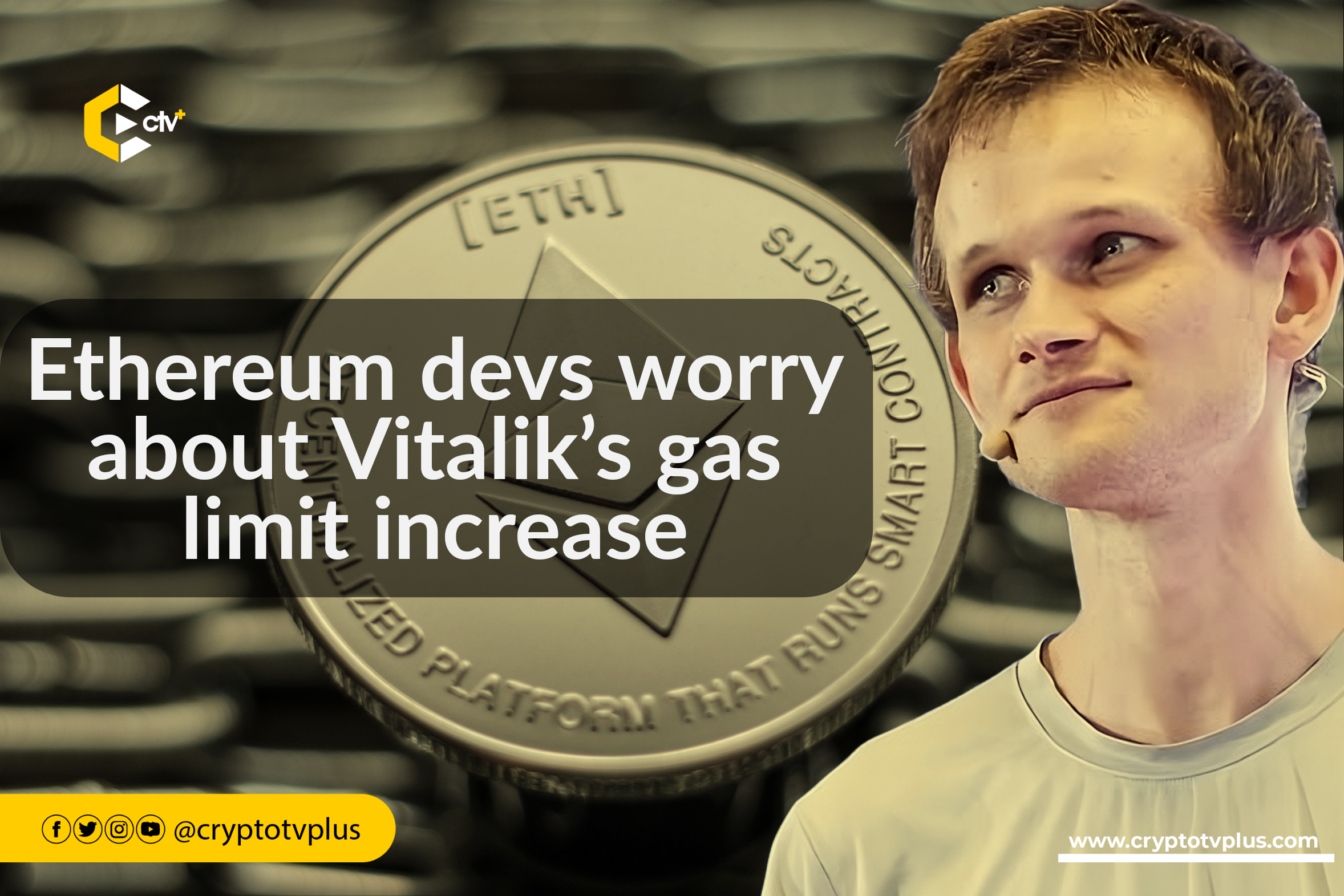News
Ethereum devs worry about Vitalik’s gas limit increase

Vitalik Buterin’s suggestion to increase the gas limit on Ethereum has sparked concern among developers, node operators, and users, despite receiving some support.
On Jan. 11, Buterin proposed a 33% increase in the gas limit, claiming it to be a “modest” change with potential benefits for improved network throughput. He argued that raising the gas limit would enhance the number of transactions processed per block, estimating a 10-15% increase with a 40 million gas limit.
In response, Ethereum developer Marius van der Wijden outlined potential drawbacks in a blog post titled “Why increasing the gas limit is difficult.” He emphasized the main concern regarding the corresponding growth in the size of the blockchain state, which includes current account balances and smart contract data.
Van der Wijden pointed out that the current state already requires roughly 267 gigabytes (GB), and increasing the gas limit would exacerbate this size.
Blockchain data indicates that the full history of the Ethereum blockchain, including state, headers, and transaction history, stands at around 900 GB.
Van der Wijden acknowledged that the cost of storage is not the primary issue; rather, the potential impact on accessing and modifying the blockchain state’s speed and efficiency poses a challenge. He noted a lack of concrete solutions to address this concern and highlighted knock-on effects such as longer synchronization times for new nodes and increased difficulty in building diverse clients.
In addition to Van der Wijden’s concerns, Gnosis co-founder Martin Köppelmann warned of potential bandwidth requirements associated with an increased gas limit.
Péter Szilágyi, the lead developer for the Ethereum client Geth, also expressed reservations about raising the gas limit.
“Increasing it has a downside. The state will grow faster, sync time will get slower quicker, DoS potential will grow.”
Concerns about the gas limit have prompted proposed solutions, including EIP-4444, addressing chain history expiration, and EIP-4844, suggesting the use of “blobs” to store rollup data availability.
Responding to Buterin’s Reddit post, software developer Micah Zoltu emphasized the importance of enabling everyday users to run Ethereum nodes on their computers.
Zoltu also highlighted the growing difficulty for everyday users to run nodes due to the increasing size of the Ethereum state and full blockchain.
“Our goal should not be to ensure that you can run an Ethereum node on an $X machine. It should be that demographic X can run an Ethereum node,” he said.
Read also: Nigeria’s Central Bank approves Africa Stablecoin Consortium to pilot Naira Stablecoin (cNGN)
























